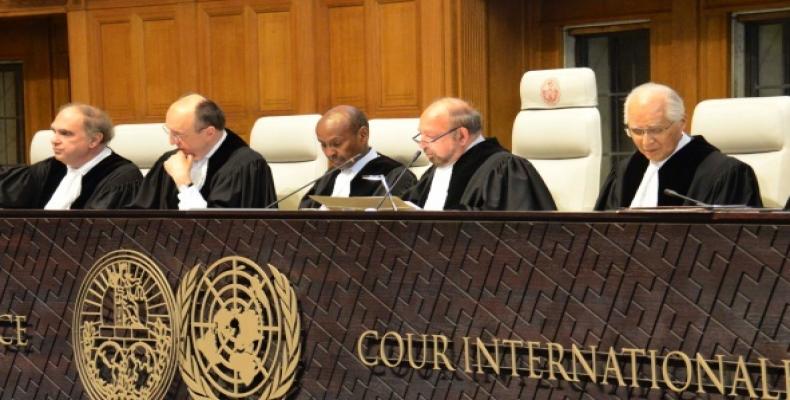La Paz, September 24 (teleSUR-RHC)-- The International Court of Justice in The Hague ruled Thursday that it will hear Bolivia's claim demanding access to the Pacific Ocean.
Chile had asked the court to state that it does not have jurisdiction, but with a vote of 14 to 2 the court rejectsed the objection by Chile.
Bolivia brought its claim against Chile to the ICJ in 2013, based on almost a century’s worth of diplomatic and historical documents in which Santiago committed to resolve the issue of Bolivia's access to the sea. The coastal territory was taken from Bolivia in The War of the Pacific (1879-1883) between the two countries, and Peru.
Meanwhile, the Chilean government was arguing that Bolivia's claim has no bearing in the international court, saying the issue was resolved by a treaty signed by both nations in 1904, and asking to have the claim dismissed.
The court declared the issue in dispute has not been resolved through other means, as the 1904 treaty required.
Both countries were given four days with the ICJ earlier this year to justify their positions regarding how much jurisdiction the court should have on the territorial dispute.
Both sides stand to gain economically by controlling the coastal region. For Bolivia – one of only two landlocked countries in Latin America – it could boost the country's trade. According to figures from the World Bank, landlocked developing countries trade on average 30 percent less than coastal countries.
As a result of higher transportation costs, Bolivia's exports are 55 percent more expensive than those from Chile and 60 percent more expensive than those from Peru, according to Global Risk Insights.
For Chile, many Liquified Natural Gas (LNG) terminals and pipelines are spread throughout its northern shoreline, the territory under dispute. LNG is imported by sea and is a major source of electricity for the country, which is not rich in hydrocarbons. It is unlikely Chile will be willing to give up this territory.
The ruling in favor of Bolivia will now see both countries being invited to return to the court to present oral arguments as to why Bolivia thinks Chile has a legal obligation to negotiate sovereign access to the Pacific. Chile will of course argue the contrary.
This entire process, if it moves forward, will likely take another three to five years, with lawmakers saying any changes are not expected until at least 2020.


